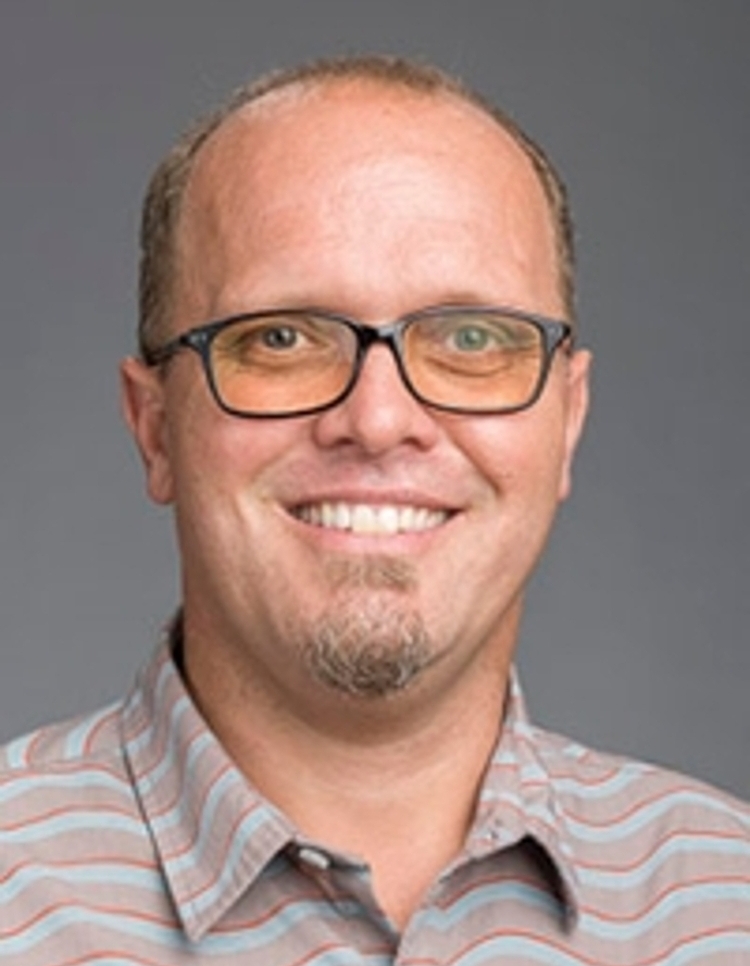
Garrett Liles
Personal Information
A Chico native, Dr. Garrett Liles earned his bachelor’s degree at Chico State with an interdisciplinary special major in soil ecology. Experiences at Chico State and in summer seasonal jobs were the springboard for a master’s in soil and watershed sciences from University of Washington, Seattle studying headwater streams and the effects of forest management on stream and soil properties, and a PhD from UC Davis studying soil organic matter and the effects of disturbance and management on the terrestrial Carbon Cycle. Liles has a diverse professional work history including mapping the soils of Lassen Park for NRCS, analysis and planning of regional biomass to energy projects, and quantifying the effects of riparian restoration at the Cosumnes River Preserve, along with years of running chainsaws, building trails, and managing natural resources.
Liles joined the faculty of the CSU Chico College of Agriculture in 2015 as an assistant professor of soil and plant science where he teaches across the spectrum of soil and ecosystem science while mentoring students to be critical thinkers and educated citizens.
Teaching
Teaching is a central focus of Liles’ day to day existence with a goal of positioning students for success through active learning and critical thinking and active exploration of innovative approaches in classroom, field, laboratory, and distance learning spaces. In addition, he enjoys exploring opportunities to collaborate with campus colleagues to develop co-teaching and hybrid interdisciplinary courses on emerging and needed topics. He believes that as educators we should strive to better present classic offering and regularly develop new ideas to lead our students into the future.
Courses
- PSSC 160 - West Coast Crop Production
- PSSC 250 - Introduction to Soil Science
- PSSC 356 - Soil Quality and Health
- PSSC 451 - Soil Genesis & Classification
- PSSC 453 - Soil Fertility & Plant Nutrition
- GEOS 489 - Big Chico Creek Watershed Tour
Research and Professional Affiliations
The overarching goals of his research is to quantify soil and ecosystem properties to better understand the effects of land use, management, and disturbance across landscapes. Together these activities probe the complexities of biogeochemistry from carbon cycling and stability in soils through watershed and regional scales.
Current research includes:
- Investigating soil health across major land uses in the Northern Sacramento Valley (Natural Resources Conservation Service - NRCS)
- exploring minimum disturbance management practices in organic vegetable productions systems. (NRCS Conservation Innovation Grant (with UC Cooperative extension)
- Investigating productivity in pasture ecosystems using seed inoculation with BEAM compost tea (Agricultural Research Initiative - ARI)
- Post fire erosion and Mercury dynamics (ARI)
- Conifer Root Growth in variable density soils (US Forest Service)
- Soil respiration data synthesis across diverse management practices in California Forests (California Energy Commission as part of the California Biopower Impacts Project with Humboldt State University
- Novel biophysical treatments (vibration) of seeds to investigate benefits to germination and early plant growth in rice (CSUC Governors Award and Chico Stem Connections Cooperative)
- Quantifying ecosystem restoration and floodplain reconnection on the Cosumnes River.
- Development of the Soil Explorer and digital soil archives to support the exploration, discovery, and learning about soil.
- College of Ag (COA) Sands Project - digital archiving and storytelling
Finally, as a founding member of the CSU Chico Center for Regenerative Agriculture, Liles explores the next phase of agriculture that focuses on enhancing soils through management and broadly sharing the love of soil through field demonstrations and diverse multimedia offerings. A major focus is leading the development of the Regenerative Ag Demonstration lab (RAD Lab). This lab aims to provide high throughput low cost analysis to support quantification of soil properties and monitor soil health across agricultural, range, and forest ecosystems in Northern California.
Service
Service is a critical component of professional life and citizenship. Liles serves broadly through campus, community, and professional activities. These include membership on the Faculty Development Board (FDEV), University Arboretum Committee, Associate Editor - Natural Science and Education, CDFA Healthy Soil Program reviewer, FFA field day, collegiate soil judging, and chair of the Soil Science Society of America education and outreach division (2019).
Publications
- Flores D, Giovanni M, Kirk, L, Liles G, 2019. Capturing and explaining sensory differences among organically grown vegetable-soybean varieties grown in Northern California. Journal of Food Science DOI:10.1111/1750-3841.14443
- Rasmussen C, Throckmorton H, Liles G, Heckman K, Meding S., Horwath W. 2018 Controls on soil organic carbon partitioning and stabilization in the California Sierra Nevada Soil Systems - Soil Systems 2(3), 41. DOI:10.3390/soilsystems2030041
- D’Elia, A, Liles, G, Viers, J, and D. Smart. 2017. Deep Carbon storage potential of buried floodplain soils. Nature Scientific Reports 7:8181 DOI:10.1038/s41598-06494-4
- Morande JA, Stockert CM, Liles GC, Williams JN, Smart DM Viers JH,. 2017. From Berries to blocks: Carbon Stock partitioning in a California Vineyard. Carbon Balance Manage (2017) 12:5 DOI 10.1186/s13021-017-0071-3
- Liles GC, Beaudette DE, O’Geen AT, Horwath WR., 2013. Developing predictive soil C models of soils using quantitative color measurements. SSSAJ 77, (6):2173-2181
- Richter D, et al, 2012 Human-Soil Relations are Changing Rapidly: Proposals from SSSA’s Cross-Divisional Working Group on Soil Change. SSSAJ, 75(6):2079-2084.

